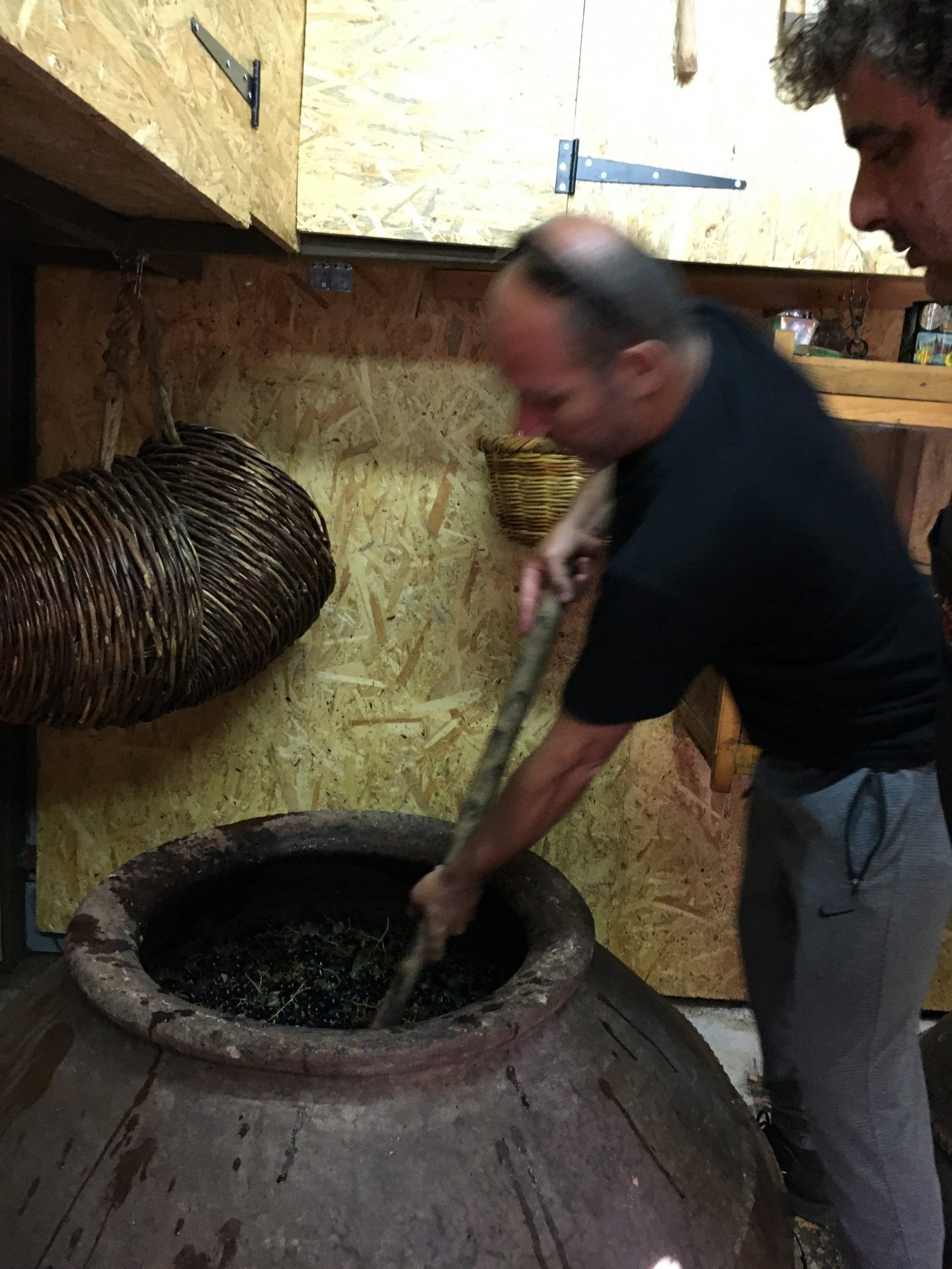Traditional Viticulture and Winemaking in Troodos
Traditional Viticulture and Winemaking in Troodos
Alona village, a gem in the Pitsilia region, is a small settlement nestled on the north-facing slopes of the Troodos Mountains at an altitude of 1200 meters. Located about an hour from the Metehan border crossing in Nicosia, the village is a haven of tradition. My friend Uygar and I were invited by Stelios, a local resident dedicated to preserving his family’s 200-year-old legacy of viticulture and traditional winemaking. We joined him during the harvest season to witness and participate in the winemaking process.
When we arrived in the village, Stelios was already harvesting with his family in the Agros region, about 20 minutes away. The vineyards, situated at an altitude of 1400 meters, feature Cyprus’s native grape varieties: Mavro (also known as Cypro Nero or Cyprus Black) and Xynisteri (a white grape variety). In this region, vineyards are often terraced into the mountainsides. The soil consists of clay and is rich in magnesium and iron, as well as magmatic gabbro and smaller rocks like plagiogranite and wehrlite. Despite its porous nature, the volcanic soil retains enough subsoil moisture to meet the water needs of the vines. While this soil composition lends the wine strength and structure, it can sometimes result in lighter colors and flavors.
Climatically, the area reaches 32°C during the hottest month of August, with nighttime temperatures dropping to 23°C. By October, when the grape harvest begins, temperatures range from 26°C during the day to 13°C at night, which significantly contributes to the quality of the wine.
Traditional Winemaking Methods
Stelios shared that until eight years ago, he merely observed his family’s tradition. However, after the loss of his father, he became deeply committed to this heritage, learning traditional methods of viticulture, harvesting, and winemaking passed down through generations. Despite having a small vineyard, Stelios managed to produce around 1500 liters of wine from last year’s harvest. In the village, nearly every family has a vineyard in the Agros region and produces their own traditional wine and zivania (a local spirit).
In the past, harvested grapes were carried back to the village on donkey-back in large baskets, a physically demanding process. Today, apart from hand-picking, grapes are transported to the village using vehicles. Once there, the winemaking process continues intensively. Grapes are crushed using a traditional wooden press with a lever and crushing cylinder, then placed in large clay jars buried halfway underground and made from Troodos’s clay-rich soil for fermentation. Stelios proudly shared a sample of wine from last year’s harvest. The wine exhibits aromas of red cherry, ripe cherry, black plum, grape, grape leaf, wet stone, and earthy notes. It has a medium body with smooth tannins, a soft, slightly sweet, and resinous taste, and a finish that, while intense initially, fades quickly. Entirely natural and traditional, the wine is made without any measuring instruments.
A Journey Through Time
Accompanied by Stelios’s wife’s delicious homemade meal and their traditional wine, our day continued with their locally produced zivania. After a delightful coffee, Stelios guided us through the narrow streets of the village, flanked by stone houses, taking us back in time. Our exploration ended in the fruit orchards, culminating with a breathtaking sunset as we began our return journey.

